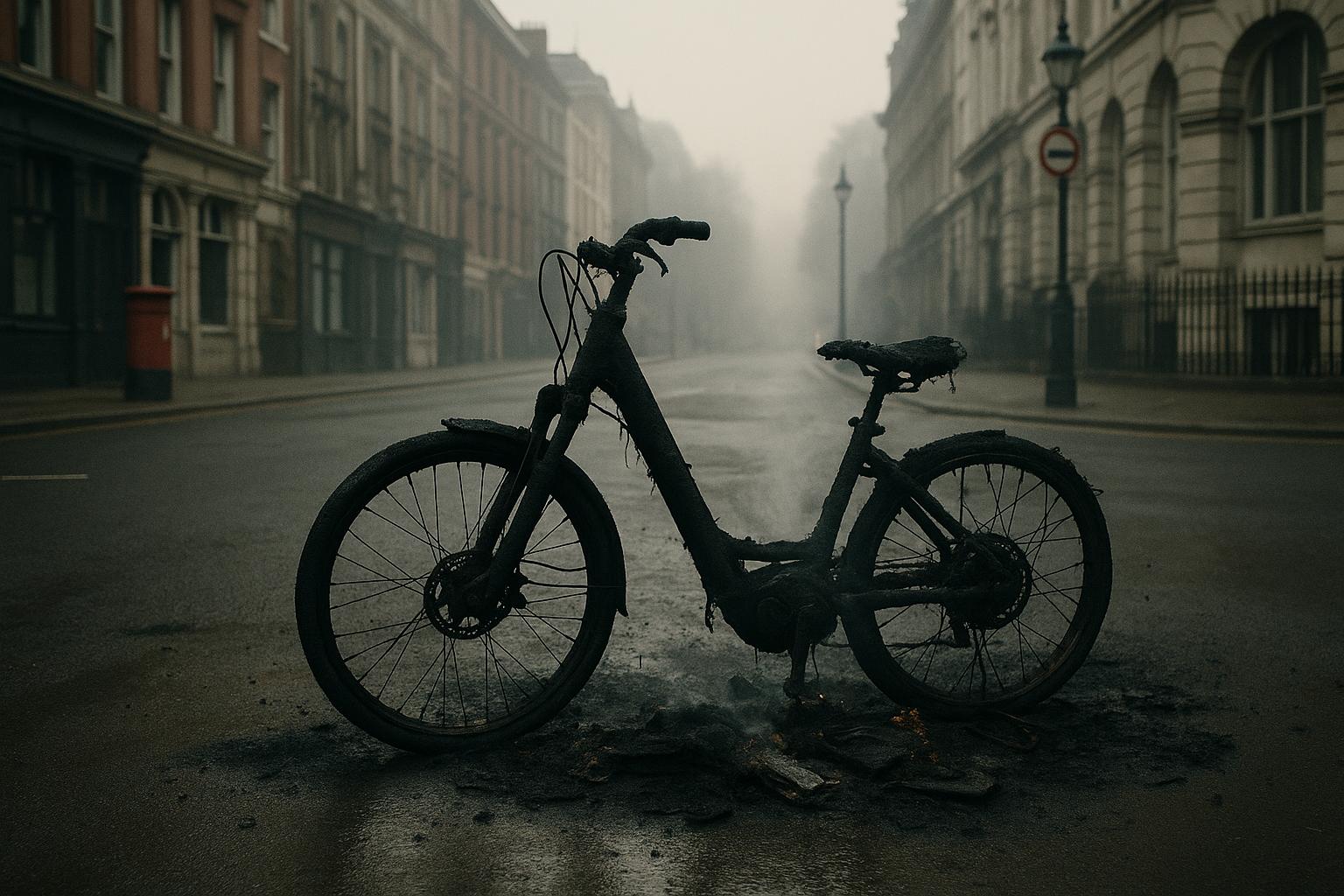Fires involving e-bikes and e-scooters in London are on course to reach an unprecedented high this year, underscoring an escalating public safety concern linked to these increasingly popular electric vehicles. The London Fire Brigade (LFB) has recorded 165 incidents involving e-bikes and e-scooters up to September 28, 2025, which averages approximately 18 fires per month. Should this trend persist, the capital is expected to surpass 200 such incidents annually for the first time on record.
This surge in fires has had tragic consequences, including the death of Eden Abera Siem, 30, who succumbed to injuries after firefighters rescued her from a blaze believed to have been caused by a battery failure during an e-bike charging event at her home in Wood Green. This incident marked the fourth fatal e-bike fire in London, with a notable pattern that none of the victims owned or used the e-bikes involved, highlighting the indiscriminate dangers posed by these fires.
The London Fire Brigade has emphasised the severe risks posed by fires linked to lithium-ion batteries, which power most e-bikes and e-scooters. Such batteries can ignite rapidly, spreading fire and releasing toxic vapours. Products bought from online marketplaces—including batteries, chargers, and e-bike conversion kits—are often more prone to malfunction due to lax regulation compared to items purchased from traditional retailers. The LFB has called on gig economy delivery companies such as Uber Eats, Just Eat, and Deliveroo to raise awareness among their riders about these fire hazards, and plans to formally request they disseminate safety advice promptly.
In response to the increasing number of incidents, Transport for London (TfL) announced a ban, effective from March 31, 2025, on non-folded e-bikes across most of its transport network. This ban includes conventional e-bikes and those converted from standard bicycles using electronic kits, which TfL’s safety review found carry a higher fire risk than purpose-built e-bikes. Foldable e-bikes, due to their specific design and lower modification risk, are exempt from the ban. This measure aims to safeguard passengers and transport staff from the dangers posed by e-bike battery fires, which have on occasion occurred onboard or at transport facilities.
The LFB’s warnings are underscored by recent tragic events where homes were severely damaged and pets lost due to fires initiated by faulty e-bike and e-scooter batteries. For instance, in early February 2025, one house in West Hampstead was gutted by fire sparked by a charging e-scooter battery, resulting in the death of a dog inside the property. The following day, another fire caused by a battery pack on a converted e-bike devastated a home in Feltham. These incidents highlight the extensive damage such fires can inflict on property and lives.
Safety experts have voiced calls for robust regulatory actions. Lesley Rudd, chief executive of the charity Electrical Safety First, urged the government to take bold steps to introduce third-party certification for e-bike batteries to ensure their safety prior to market sale. She also advocated for stringent new standards for conversion kits and tougher regulations targeting online platforms that facilitate the sale of substandard electrical goods. These interventions are deemed crucial to curb the rising incidence of fires and protect consumers.
The Department for Business and Trade has already launched a public safety campaign encouraging consumers to purchase electrical products from reputable sources. Meanwhile, the London Fire Brigade has been actively working with product safety experts to disseminate #ChargeSafe advice focusing on safe charging and storage practices, particularly in areas with higher occurrences of e-bike fires. This ongoing public education effort seeks to reduce the risk of these fires and protect communities from their devastating consequences.
Together, these developing responses reflect an urgent recognition of the dangers associated with e-bikes and e-scooters, particularly those involving poorly regulated or modified components. With their growing popularity, balanced regulation, public awareness, and industry responsibility will be essential to preventing further harm.
📌 Reference Map:
- Paragraph 1 – [1], [2], [4]
- Paragraph 2 – [1], [2]
- Paragraph 3 – [1], [3], [6]
- Paragraph 4 – [4], [1]
- Paragraph 5 – [4], [5]
- Paragraph 6 – [1], [7]
- Paragraph 7 – [1], [7]
Source: Noah Wire Services
